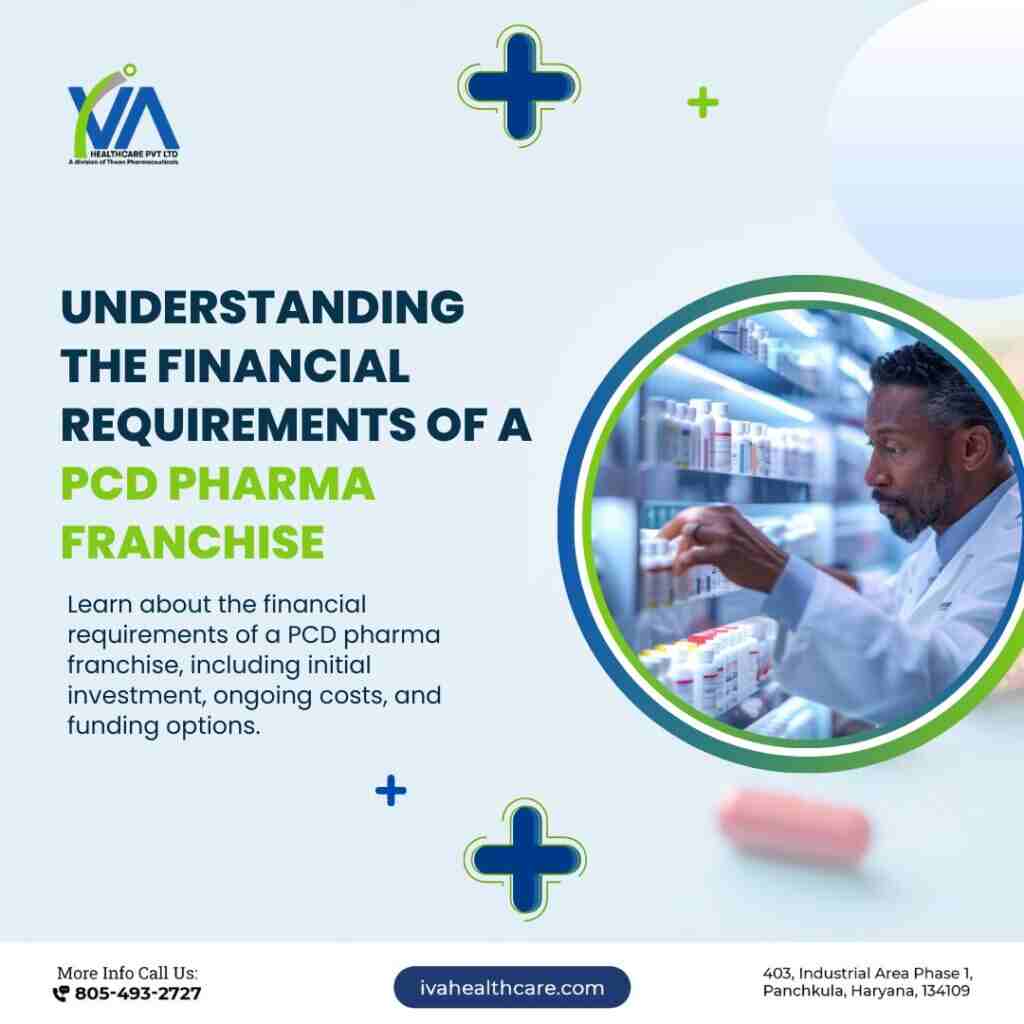


Learn about the financial requirements of a pharma franchise, including initial investment, ongoing costs, and funding options.
Starting a PCD pharma franchise will be a successful business, but one needs to understand the involved financial requirements. We have tried to put in all the major financial points for starting and flourishing a PCD pharma franchise in this paper.
Initial Investment Costs
The initial investment is, therefore, the money that one needs to start a PCD pharma franchise. It comprises some of the following key expenses:
1. Franchise Fee: Most of the PCD pharma companies charge a franchise fee, which grants you the right to sell its company name, products, and support.
2. Drug License: You have to pay another amount for the drug license required for the sale of pharmaceutical products, the cost of which varies from area to area.
3. Business Registration: A fee has to be paid while registering one’s business with the concerned government for having your business legally recognized.
4. Office Setup: You will require an office from which you can operate your franchise. This would involve expenses for the rental or purchase of office space, furniture, and equipment.
5. Inventory: You must have enough stock of pharmaceutical products before you start selling. The cost of the initial inventory could be high.
Projected Initial Costs
Franchise Fee: $5,000 – $20,000
Drug License: $500 – $2,000
Business Registration: $300 – $1,000
Office Setup: $2,000 – $10,000
Initial Inventory: $10,000 – $50,000
Ongoing Costs
There are running costs associated with the PCD pharma franchise. These are the recurring expenses you will have to incur in order to run your business properly.
1. Rent and Utilities: You are renting office space or a godown, so you have to pay the monthly rent. This will also include utilities like electricity, water, and the internet.
2. Salaries: You have to pay the salaries of your employees. This should include your sales representatives, office staff, and whosoever else works with you.
3. Marketing and Promotion: The attention of people has to be drawn towards the store; this is imperative for marketing. Advertisement, promotional offers, online presence costs, etc.
4. Inventory Replenishment: In order to keep the stock fresh, you will have to update your stock regularly. This is a continuous expenditure.
5. Other Expenses: Other expenses include transportation facilities, insurance and maintenance of office equipment, etc.
Approximate Monthly Costs:
Rent and Utilities: $1,000 – $5,000
Salaries: $2,000 – $10,000
Marketing: $500 – $3,000
Inventory Replenishment: $5,000 – $20,000
Others: $500 – $2,000
Sources of Financing
The new venture requires financing to help meet start-up and on-going expenses. Listed below are some common sources of financing:
1. Personal Savings: This is the most common source of financing a new venture. You do not have to incur debt and subsequent interest payments.
2. Bank Loan: Banks offer business loans to finance a new venture. You will require a good business plan to get a bank loan.
3. Investors: You can look for investment from people or venture capitalists. They will provide you with the money; in turn, you will give them a share of your business.
4. Government Grants: Many governments grant subsidies and grants to small businesses. Find out whether such is available where you can operate.
5. Partnerships: Having a partner can lighten your financial burden. It can be a business partner or another business altogether.
Financial Planning
Proper financial planning is the key to making your PCD pharma franchise successful. Here are the tips for proper financial planning:
1. Detailed Business Plan: A business plan outlines all of your goals, strategies, and financial projections. It helps in understanding your financial needs and thus helps to plan accordingly.
2. Tally All Expenses: One needs to maintain a detail-oriented record of all the expenses. This will help you understand where your money is going; moreover, it shall provide a clear understanding of areas where you can cut down costs.
3. Keep a Tab on the Cash Flow: Be certain you’ve got adequate cash to pay your expenses. Regularly monitor your cash flow to avoid any financial shortfalls.
4. Budgeting: Plan out a budget for your business and stick to it as much as possible; this will help avoid overspending.
5. Provide for Contingencies: Some unexpected expenditure may at times creep up on you. Save some for emergency purposes.
